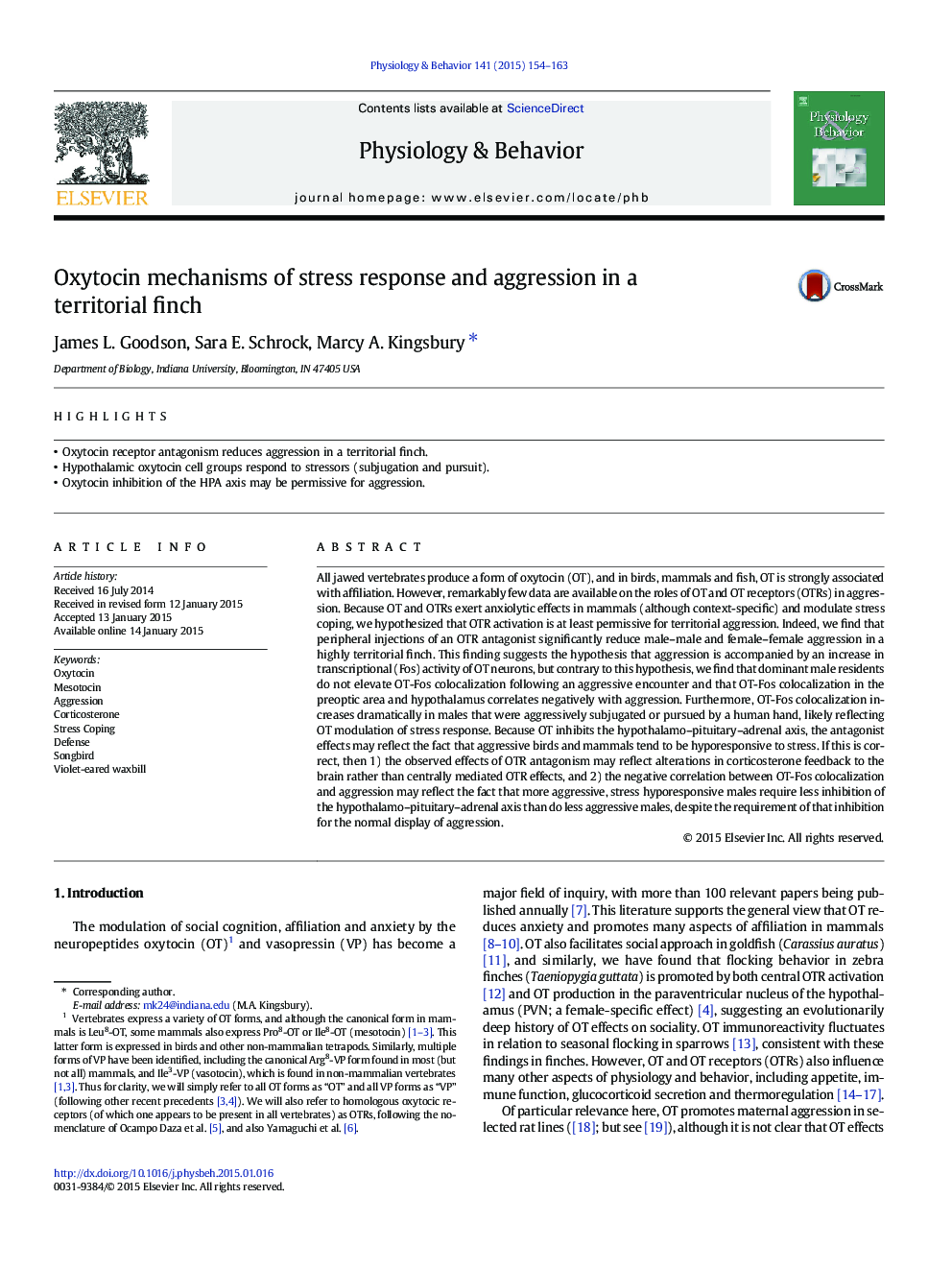| کد مقاله | کد نشریه | سال انتشار | مقاله انگلیسی | نسخه تمام متن |
|---|---|---|---|---|
| 5923779 | 1571176 | 2015 | 10 صفحه PDF | دانلود رایگان |
- Oxytocin receptor antagonism reduces aggression in a territorial finch.
- Hypothalamic oxytocin cell groups respond to stressors (subjugation and pursuit).
- Oxytocin inhibition of the HPA axis may be permissive for aggression.
All jawed vertebrates produce a form of oxytocin (OT), and in birds, mammals and fish, OT is strongly associated with affiliation. However, remarkably few data are available on the roles of OT and OT receptors (OTRs) in aggression. Because OT and OTRs exert anxiolytic effects in mammals (although context-specific) and modulate stress coping, we hypothesized that OTR activation is at least permissive for territorial aggression. Indeed, we find that peripheral injections of an OTR antagonist significantly reduce male-male and female-female aggression in a highly territorial finch. This finding suggests the hypothesis that aggression is accompanied by an increase in transcriptional (Fos) activity of OT neurons, but contrary to this hypothesis, we find that dominant male residents do not elevate OT-Fos colocalization following an aggressive encounter and that OT-Fos colocalization in the preoptic area and hypothalamus correlates negatively with aggression. Furthermore, OT-Fos colocalization increases dramatically in males that were aggressively subjugated or pursued by a human hand, likely reflecting OT modulation of stress response. Because OT inhibits the hypothalamo-pituitary-adrenal axis, the antagonist effects may reflect the fact that aggressive birds and mammals tend to be hyporesponsive to stress. If this is correct, then 1) the observed effects of OTR antagonism may reflect alterations in corticosterone feedback to the brain rather than centrally mediated OTR effects, and 2) the negative correlation between OT-Fos colocalization and aggression may reflect the fact that more aggressive, stress hyporesponsive males require less inhibition of the hypothalamo-pituitary-adrenal axis than do less aggressive males, despite the requirement of that inhibition for the normal display of aggression.
Journal: Physiology & Behavior - Volume 141, 15 March 2015, Pages 154-163
